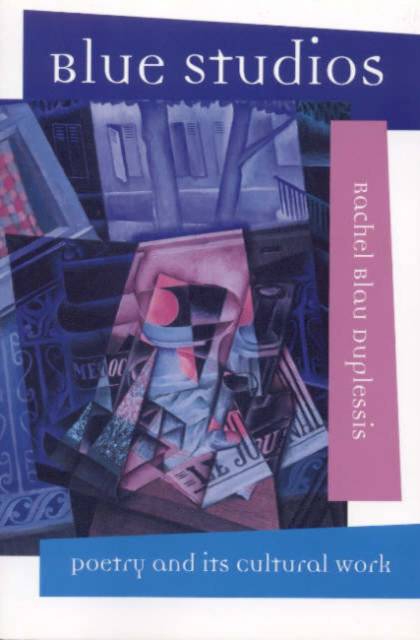
- Retrait gratuit dans votre magasin Club
- 7.000.000 titres dans notre catalogue
- Payer en toute sécurité
- Toujours un magasin près de chez vous
- Retrait gratuit dans votre magasin Club
- 7.000.0000 titres dans notre catalogue
- Payer en toute sécurité
- Toujours un magasin près de chez vous
Description
Examines the work of experimental poets and the innovative forms they create to disrupt assumptions about gender and cultural power In her now-classic The Pink Guitar, Rachel Blau DuPlessis examined a number of modern and contemporary poets and artists to explore the possibility of finding a language that would question deeply held assumptions about gender. In the 12 essays and introduction that constitute Blue Studios, DuPlessis continues that task, examining the work of experimental poets and the innovative forms they have fashioned to challenge commonplace assumptions about gender and cultural authority. The essays in "Attitudes and Practices" deal with two questions: what a feminist reading of cultural texts involves, and the nature of the essay itself as a mode of knowing: how poetry can be discursive and how the essay can be poetic. The goal of "Marble Paper," with its studies of William Wordsworth, Ezra Pound, and Charles Olson is to suggest terms for a "feminist history of poetry." "Perspectives must be fashioned that displace and estrange the world," Theodore Adorno wrote, and in the section "Urrealism" DuPlessis examines the work of poets from several schools (the Objectivists, the New York School, the surrealists) whose work embodies that displacement, among them George Oppen, Lorine Niedecker, H.D., and Barbara Guest. These writers' radical deployment of line, sound, and structure, DuPlessis argues, demonstrate poetry's power not as a purely literary, artistic, or aesthetic force but as a rhetorical form intricately tied to issues of power and ethics. And in "Migrated Into," the author probes the ways these issues have informed her, as a poet and a critic; how the political has "migrated into" and suffused her own work; and how the practice of poetry can be an arousal to a deeper understanding of what we stand for.
Spécifications
Parties prenantes
- Auteur(s) :
- Editeur:
Contenu
- Nombre de pages :
- 312
- Langue:
- Anglais
- Collection :
Caractéristiques
- EAN:
- 9780817353216
- Date de parution :
- 01-09-06
- Format:
- Livre broché
- Format numérique:
- Trade paperback (VS)
- Dimensions :
- 154 mm x 228 mm
- Poids :
- 476 g

Les avis
Nous publions uniquement les avis qui respectent les conditions requises. Consultez nos conditions pour les avis.






